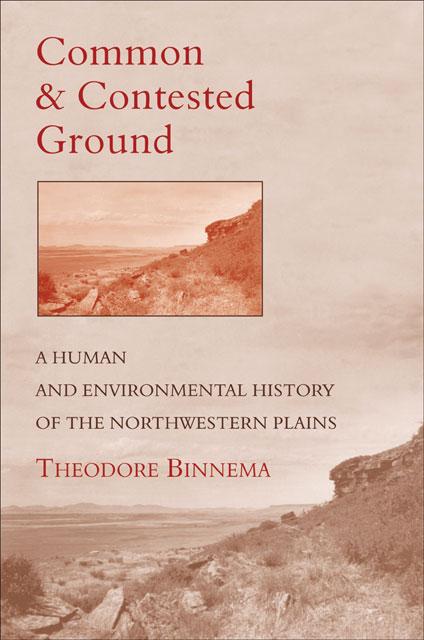Binnema, Theodore. Common and Contested Ground: A Human and Environmental History of the Northwestern Plains. Norman: University of Oklahoma Press, 2001. Binnema begins his study by setting the physical context, discussing the landscape, climate, and natural resources of the plains. The climate precluded humans from building surpluses with agriculture, making hunting and gathering bands the basis of human organization. The topography of the plains, though it precluded agricultural development, was conducive for large herds of bison, which were able to feed on its grasses year-round. Hunting bison was the primary economic activity of its residents. Having established the physical context of his study, Binnema then gives a detailed, nuanced history of the region’s tribal groups. He employs a complex methodology involving ethnohistory, drawing upon travelers’ accounts as well as the archaeological record of the region, to reconstruct the economic and social patterns of life on the northwest plains. Once Binnema establishes the physical context and his model of human interaction, his discussions of trade, diplomacy, disease, and warfare strongly convey a sense of place. Binnema’s work also follows the historiography of the past three decades in stating that the native bands—in contact with Europeans in the late eighteenth century—were active participants in trade rather than passive victims. What results is a sophisticated understanding of how these people lived prior to the nineteenth century, as Binnema incorporates discussion of environmental, technological, and social factors in explaining the region’s history. Common and Contested Ground is an excellent example of a study of the evolving relationship between a place and its peoples. (Text adapted from an H-Net review by Carl Zimring.) Theodore Binnema, assistant professor of history at the University of Northern British Columbia, lives in Prince George, British Columbia.
Common and Contested Ground: A Human and Environmental History of the Northwestern Plains
Binnema, Theodore | from Multimedia Library Collection:
Books & Profiles



